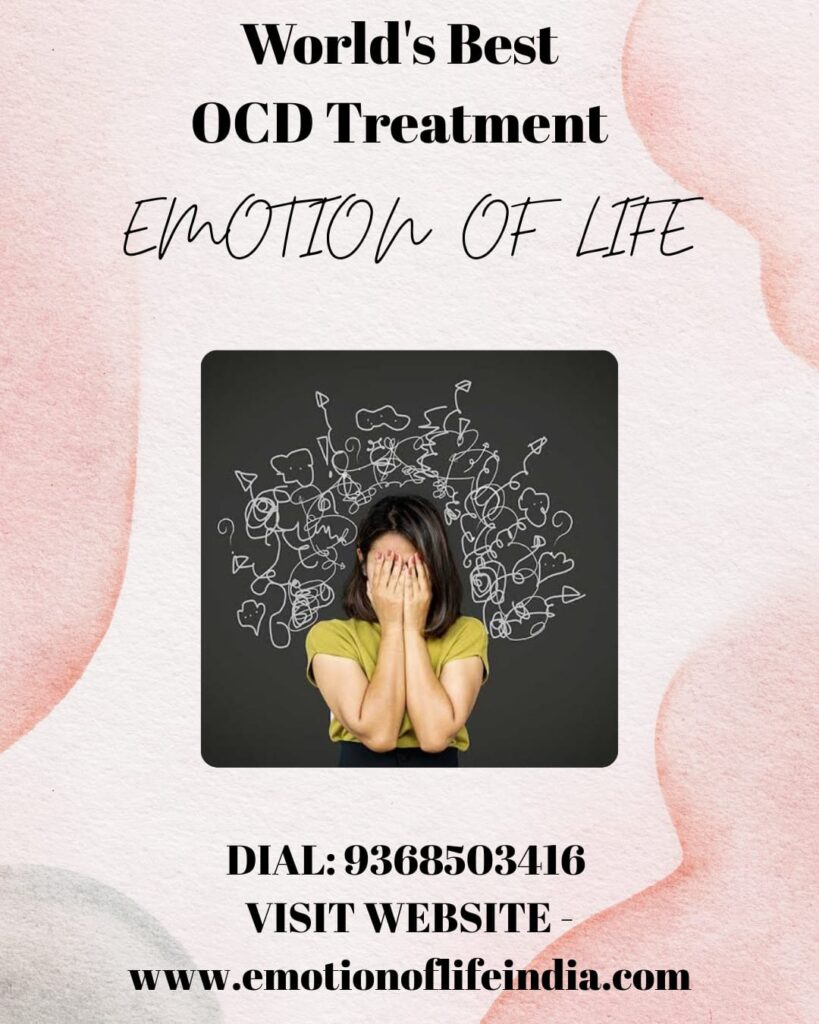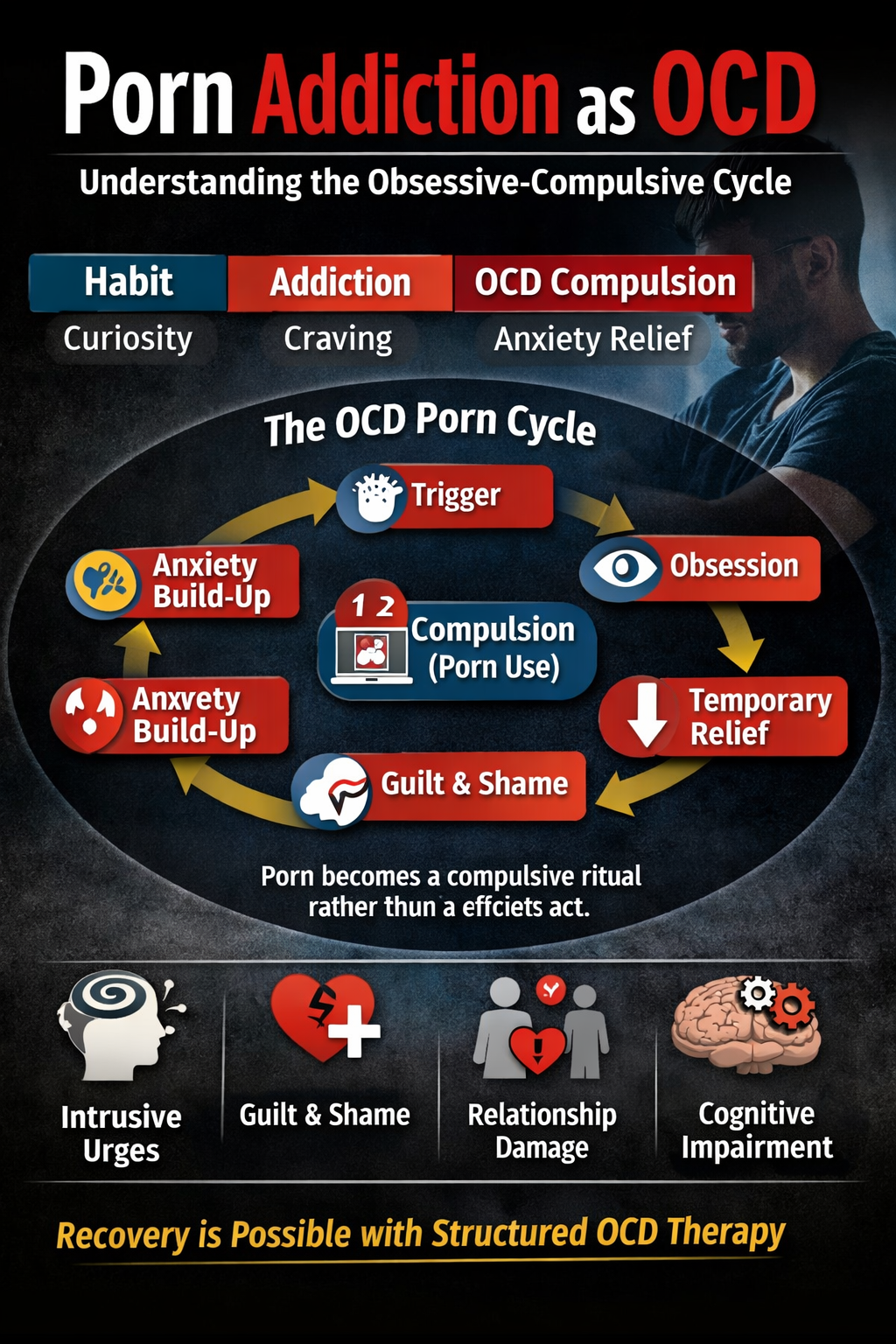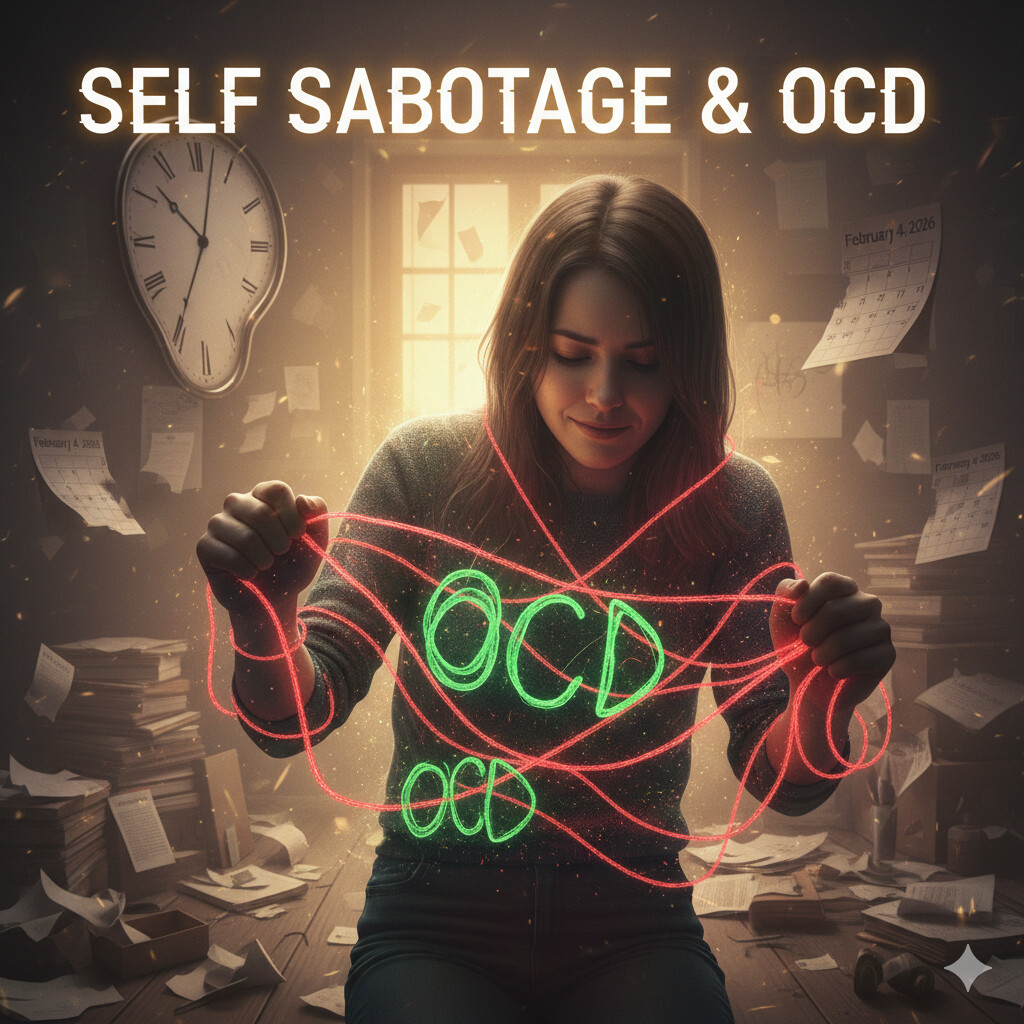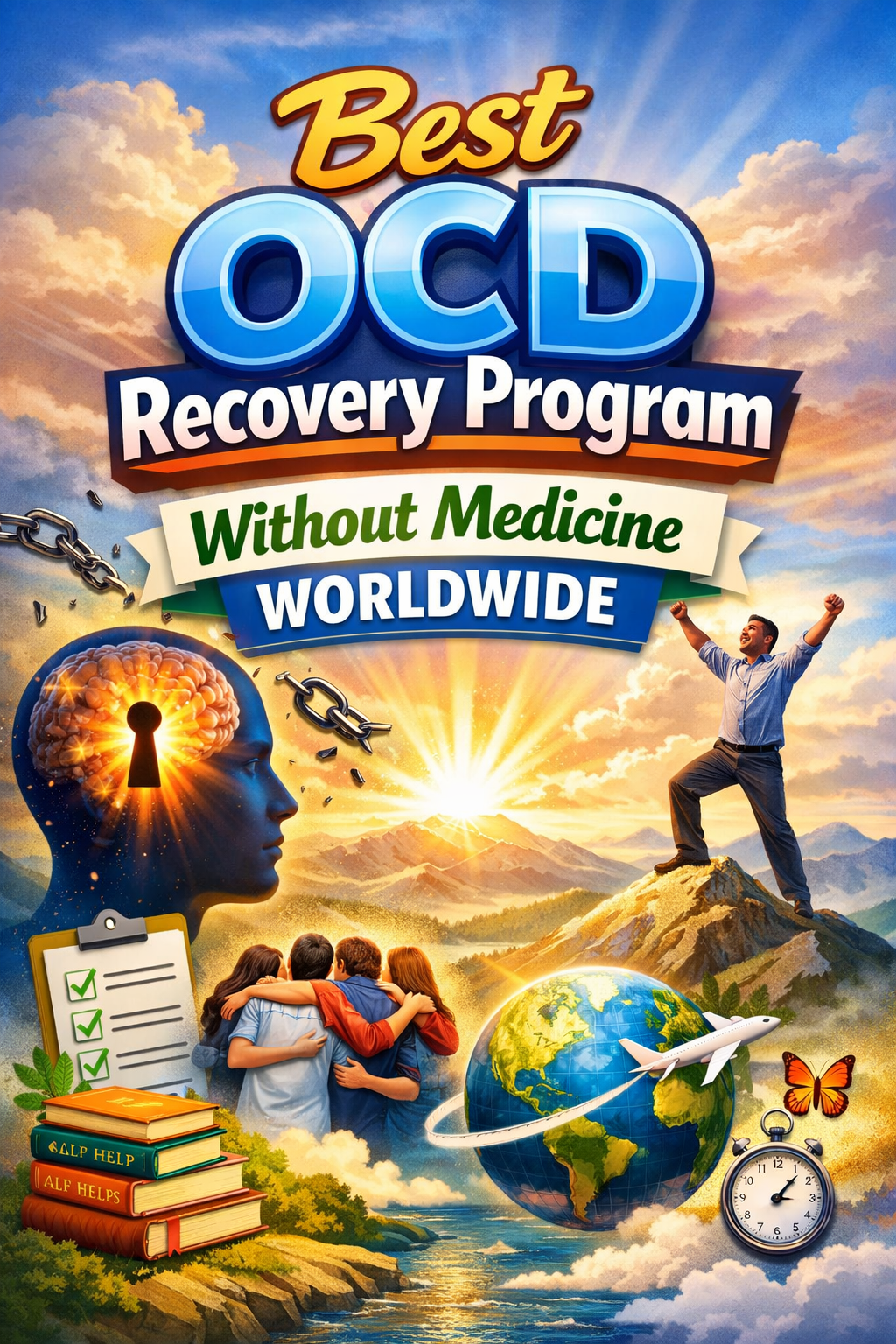Perfection OCD is a subtype of OCD characterized by an intense preoccupation to be a perfect person in term of habits, gesture and actions to seek self-validation and validation as acknowledgment from others and having overwhelming reaction as fear of considering as making mistakes.
Perfection OCD, person experience intrusive thoughts, images, or urges related to being imperfection if not follow set pattern of actions that lead to compulsive actions aiming to be preventing perceived errors. Perfection OCD impact daily functioning, close relationships & well-being in general. Person with perfection ocd spend excessive time & energy on physical and mental rituals in checking, seeking reassurance as validation of correct acts to overcome anxiety. It involves rigid set rules as standards & unrealistic expectations to chase in day-to-day life leading to day-to-day distress and affecting multiple areas of life negatively.
Perfection OCD Symptoms:
- Excessive preoccupation of being and remaining with Perfect
- Constant fear of doing mistakes, trying to validate from self and others
- Doing compulsions such as correcting mistakes, excessive checking, rewriting organizing.
- Reassurance seeking behaviours, frequent reassurance from others to clear the anxiety about performance & correctness of self-actions.
- Difficulty in taking decisions because of polarise thinking, avoidance of decision making.
- Procrastination, postponing the due tasks due to the fear of not being able to complete.
- Perfectionism across multiple areas, Striving for perfection in all aspect of life.
- Low Self-Esteem: feeling low self-esteem & self-criticism when not able to achieve self-set expectation and expectation of others.
- Avoidance, avoiding situations, activities that may result in perceived failure.
- Physical Symptoms: Experiencing extreme anxiety, sweating, tingling, trembling, racing of heartbeat, gastrointestinal disturbance.
Perfection OCD impact on life
Work and Academic Performance: Individuals spend excessive time and energy on tasks, projects, assignments that lead to decreased in productivity, missing deadlines, increased stress. fear of making mistakes prevent individuals from taking new challenges.
Interpersonal Relationships: affecting relationships with family, friends, colleagues. Person struggle to accept imperfections in themselves and others because of unrealistic expectations. Because person have constant need for reassurance and validation create tension in relationships, as others feel frustrated by the proving constant reassurance.
Emotional Well-being, Perfection OCD impact mental health and emotional wellbeing negatively as contributing to increasing anxiety, depression, affecting self-esteem. People with perfection ocd experience extreme negative emotions of incompleteness when face falling to fulfil self set standards. Its lead to vicious cycle of self-criticism, negative thinking about own self.
Physical Health: Perfection OCD leads to headaches, muscle tension, sleeplessness, gastrointestinal trouble. Persistent pressure to meet set standards lead to burnout, fatigue
Leisure and Enjoyment: Perfection OCD interfere with opportunity to involve in relaxing & entertainment activities. Person with perfection ocd start avoiding hobby, participation in social gathering that is perceive as possibility of being judge by others. That further leads to sense of isolation. Leading to compromising quality of life.
Financial Impact: Perfection OCD lead to excessive spending to to compete the task in perfect manner as a result majority of time they lose career growth opportunity.
Overall, perfectionism OCD significantly impact routine functioning and compromise quality of life, if it is not treated create a effect like poison in life. Its needed to get relevant treatment approach at the earliest to minimise the impact of perfection OCD to learn new needed coping mechanism, learn healthiest approach to handling perfection OCD.
Causes and triggers of Perfection OCD
- Personality Traits: Certain personality traits, such as high levels of conscientiousness, perfectionism, high anxiety, high sensitivity become predispose and precipating factors to develop perfection OCD, such traits create a ground for the onset of perfection OCD.
- Environmental Factors: Traumatic stressful life events, such as childhood trauma, abuse, neglect, changes in life trigger development of perfectionism OCD, other environmental factor such as academic pressure, professional life demands, self expectations and expectation from others close one increase the impact of perfection OCD.
- Learned Behaviour: like other OCD subtype perfection OCD is also a learn behaviour. Most people develop to get the appreciation of others and imitation of close family members. Person learn perfection behaviors from caregivers, authority figures who follow high standards and put unrealistic expectations on themselves or others. Reinforcement of perfection behaviour further to complex situation.
- Cognitive Factors: Maladaptive beliefs and cognitive distortions, such as all or nothing thinking, overgeneralization, catastrophize reaction contribute to the development and maintenance of perfectionism OCD. Person beliefs about the importance of achieving perfection and extreme need of not making mistakes triggers perfection OCD.
- Triggering Events: Situations like performance evaluations, constant criticism, uncertainty in life, need to make decisions affect negatively perfection OCD. These triggers contribute in activating underlying fears of failure, rejection, inadequacy, that lead to heightened anxiety & ritualistic behaviors.
Treatment of Perfection OCD
- Cognitive-Behavioural Therapy: CBT to identified negative distorted thoughts and learning more rational and healthy way of living and Cognitive restructuring to change perfectionist beliefs& thought patterns
- Exposure and Response Prevention: ERP to giving needed and relevant systematic exposure to control and achieve desire behaviour ERP expose person with perfection OCD gradually exposing individuals to situations that trigger their perfectionistic fears while refraining from engaging in compulsion.
- Mindfulness-Based Approaches: Mindfulness based cognitive therapy & acceptance and commitment therapy (ACT) guide individuals develop more self-awareness about their perfectionist thoughts without insecurity of being judge by others. Mindfulness encourages and guide acceptance of imperfections commitment for easy and better life with self-compassion.
- Lifestyle Changes: Adopting lifestyle changes, such as prioritizing self-care, setting realistic goals, practicing relaxation techniques, maintaining a healthy routine that reduce stress & chasing perfection.
- Psychoeducation: Proving relevant and needed education on perfection OCD, its sign, symptoms, triggers and treatment options empower individuals to take an active participation in their OCD recovery journey. During psychoeducation individuals develop insight into their present situation and how others are living and balancing life.
Way of addressing Perfection OCD by own self:
- Challenge your Perfection approach as how its is helping you.
- Set Realistic Goals based on common man ground as living a normal life.
- Practice Self-Compassion to enhance self-esteem, kindness towards self, understanding no one is perfect in the world, accepting imperfections is part of life.
- Develop Coping Skills: as enhancing humour, relaxation, mindfulness, meditation, increasing social network, volunteering, seeing other side of word as poverty and other limitations to accept life as it is and building resilience.
- Getting available Support: Reaching out to supportive friends, family members, Psychologist for guidance and assistance in managing perfection.
- Focus on Progress not Perfection: Shift the focus from achieving perfection to making progress, learning from mistakes, recognizing that growth & becoming better is important than being error free.
- Selfcare: focusing on diet, nutrition, workout, hobbies, entertainment, creative, spending time with family and friends
Perfection OCD Recovery Success Story:
Perfection OCD Recovery Success Story 1
Tarrannum from Punjab Overcomes Perfectionism OCD
Tarrannum, a bright and ambitious 21-year-old from Punjab, was living under the constant pressure of Perfectionism OCD. Her entire day revolved around the need to do everything flawlessly, leaving her mentally and physically drained.
Her daily life was dominated by exhausting routines:
- Exercise: 90 minutes in the morning and 90 minutes in the evening, without fail
- Diet restriction: Limiting herself to only 1200 calories a day, even though she weighed just 42 kg
- Room maintenance: Spending hours every day keeping her room “perfect” at all times
- Overstudying: Focusing so much on studies that she had no social life or time for herself
What looked like “discipline” from the outside was, in reality, a mental prison of perfectionism. Her body was exhausted, her mind restless, and her life joyless.
Finding the Right Path to Recovery
With her health and happiness at stake, Tarrannum’s family reached out to Emotion of Life, where OCD Specialist Shyam Gupta took her case. She was enrolled in the Daily Session Model under the 16-Step OCD Recovery Program Process—a structured approach based on Cognitive Behavioural Therapy (CBT) and Exposure & Response Prevention (ERP), entirely without medication.
The 3-Month Transformation
From day one, Shyam Gupta worked closely with Tarrannum to break the cycle of compulsive perfectionism.
- CBT helped her identify and challenge the irrational thoughts driving her need for control.
- ERP techniques gradually exposed her to imperfections, teaching her to tolerate them without anxiety.
- Her mother played an extraordinary role—monitoring her daily, supporting her through challenging exposures, tracking every improvement, and constantly updating Shyam Gupta on her progress.
Gradually, Tarrannum reduced her exercise to a healthy routine, allowed herself a balanced diet without calorie obsession, and learned to keep her room tidy without overdoing it. She rediscovered time for hobbies, social connections, and rest.
The Result – 100% Recovery and 5 Years of Stability
In just 3 months, Tarrannum achieved 100% recovery. Today, it has been 5 years since her treatment, and she remains completely stable with no relapse. She now enjoys a healthy, balanced life—proof that OCD recovery without medicine is possible when treatment, family support, and personal commitment come together.
Her journey is a shining example of:
- The expertise of Shyam Gupta at Emotion of Life
- The effectiveness of the 16-Step OCD Recovery Program
- The unwavering family involvement, especially her mother’s dedication
A Beacon of Hope
Tarrannum’s success shows that even deeply ingrained perfectionism OCD can be overcome. With the right therapy, structured daily sessions, and committed family support, lasting recovery is not only possible—it can be permanent.
Perfection OCD Recovery Success Story 2
Vijay from Mumbai Overcomes Perfectionism OCD
Vijay, a bright and determined 15-year-old student from Mumbai, had been struggling silently with Perfectionism OCD for over two years. His daily routine was consumed by repetitive, time-consuming rituals that left him mentally exhausted and behind in his studies.
Everyday tasks became overwhelming:
- Bathing: 40 minutes, repeatedly scrubbing until it “felt just right”
- Brushing: 40 minutes, ensuring teeth were cleaned perfectly
- Dressing: 30 minutes, adjusting clothes until they felt “exactly right”
- Bottle cleaning: 20 minutes, scrubbing repeatedly to remove any perceived spot
- Arranging school bag: 30 minutes, placing each item with precision
- Cleaning study table: 20 minutes, ensuring perfect alignment
- Combing hair: 20 minutes, making sure every strand was in place
These habits were not a matter of laziness or preference—they were driven by intrusive perfectionist thoughts and the fear of something going wrong if things weren’t “just right.”
Finding the Right Help
Vijay’s parents, deeply concerned about his well-being and future, reached out to Emotion of Life, where OCD Specialist Shyam Gupta and senior therapist Ms. Chawla took on his case. They introduced Vijay to the 16-Step OCD Recovery Program Process—a structured, proven approach using Cognitive Behavioural Therapy (CBT) and Exposure & Response Prevention (ERP) without medication.
The 4-Month Recovery Journey
Vijay was enrolled in Emotion of Life’s Daily Session Model, which provided consistent guidance, accountability, and step-by-step exposure work.
- CBT helped him challenge irrational perfectionist thoughts.
- ERP sessions gradually reduced his compulsive rituals.
- Daily monitoring by his mother ensured he applied techniques at home. She played a crucial role in supporting, tracking progress, and gently encouraging him to face discomfort without repeating rituals.
Shyam Gupta and Ms. Chawla adjusted strategies based on Vijay’s progress, ensuring every small win built momentum. Over time, his bathing time reduced from 40 minutes to just 8 minutes, brushing to 4 minutes, and other rituals were brought down to normal levels.
The Result
After just 4 months, Vijay achieved 99% recovery. He now enjoys a normal school routine, spends more time on studies and hobbies, and no longer feels trapped by the “just right” feeling. He is still under follow-up sessions to maintain progress and prevent relapse.
Vijay’s success was the result of:
- The expert guidance of Shyam Gupta and Ms. Chawla
- The structured 16-step OCD Recovery Program at Emotion of Life
- The unwavering support and daily involvement of his mother
A Message of Hope
Vijay’s journey proves that OCD recovery without medicine is possible when there is the right treatment, consistent effort, and family involvement. At Emotion of Life, we have seen countless similar transformations, and Vijay’s story stands as an inspiration for anyone struggling with OCD.
Call: +91 9368503416 www.emotionoflife.in Email: info@emotionoflife.in
Book Now | Review | OCD Types | Our Experts | Success Stories| Contact Us| MyPsychologist











